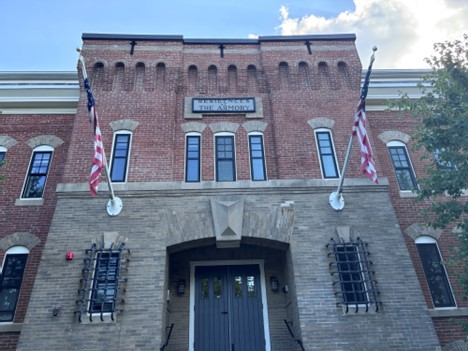As concerns the [“We Have Questions”] article entitled “I Had a Vision of What Plymouth Could Be”:
The buildings (The Armory, Mount Pleasant School, etc.) that have been renovated by [Rick] Vayo, et al, are beautiful. I love that they remain in keeping with the historical architecture of their neighborhoods. That said, the decision to change the only hotel overlooking the ocean in a coastal town to luxury apartments seems out of step with that vision and in stark contrast to a comment made later in the article about there being no nice hotels in downtown Plymouth. That was a missed opportunity to turn that site into a super cool, mod boutique hotel.
Secondly, as a resident of downtown Plymouth, I believe the primary concern for the area is parking and traffic, not housing (unless you’re talking affordable housing).
Finally, but most importantly, the article is rife with classism. For example:
- Use of the word “seedy” to describe the Bradford
- The denigrating tone in which pawn, vape, and tattoo shops were mentioned.
- “Everybody hates change:” this portrays those who may be struggling with housing costs as somehow backwards thinking, wanting to return to a “sun-speckled fantasy version of the “old days.” ‘That’s unfair to people who just want to be able to afford to live here.
- “An impenetrable mess that overlooked an auto repair shop”, is how the town-neglected and now denuded park originally designed by Frederick Law Olmstead was referred to. I appreciate Mr. Vayo taking responsibility for the error, but can we do that without demeaning a small, locally owned business like it’s an eyesore or the neglected work of a world-renowned landscape architect?
- Second tier to Duxbury? We are different; different doesn’t mean inferior.
- Why no highlighting of the affordable housing on Carver Road and State Road? I’d love to hear about the vision of those places, the amenities, the green features, etc. Why highlight only the luxury places?
- “Ready to act” and “developer with “drive and vision.” Yes, and more importantly capital. Which is part of why we loved Bill Keohan so much because he saw these projects as well and worked hard for years to shape a vision of Plymouth that balanced development, restoration, affordable housing and outdoor space.
- 55-plus communities tend to be much higher income and overall out of the reach of people in our community. Also reinforces a narrow view of what family looks like and the changing face of who’s living with whom because young people can’t afford housing.
The article feels more like an advertisement for Mr. Vayo and his company and less like journalism. I believe wholeheartedly in the need for good local journalism. This is not that.
– Jenny Healy

